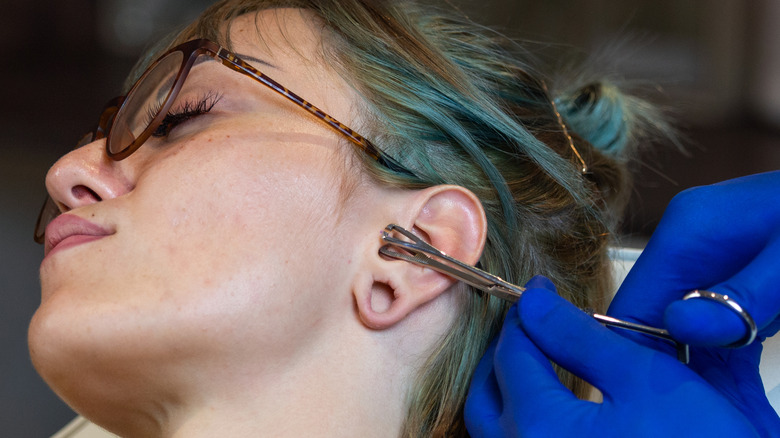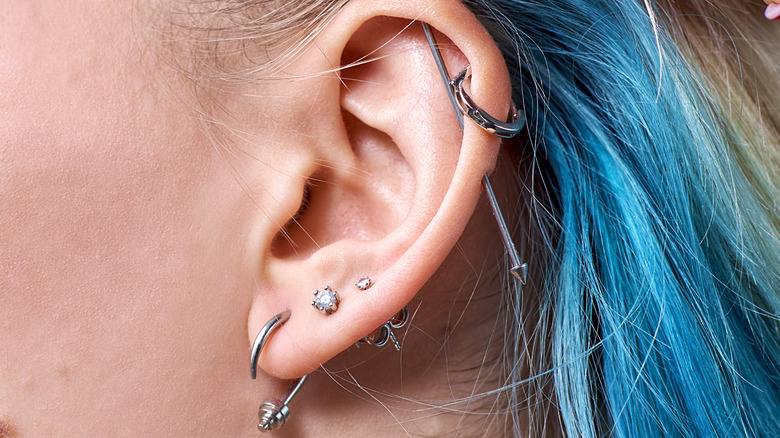Here's Why You Should Think Twice About Piercing Your Own Ears
Ear piercings are the most common body piercings. You can have just one on an ear or numerous, meaning your ears become blank canvases, and people get them at all ages. Some people even pierce their baby's ears. There are certain things you should know when piercing your ears, though. For example, you should know the dos and don'ts of cleaning piercings, and you should probably also know the proper procedures for acquiring piercings.
Most people get their ears pierced by trained professionals, but there are some who always opt for the riskier path. In this case, that means piercing your ears by yourself or with a friend. Either way, the latter doesn't involve a professional. You should think twice before you do so, but if you're going to pierce them yourself, you should take some precautionary steps. These steps include having all of your equipment set up ready to go so that you're less likely to have an accident, taking proper care of them after they're pierced, and ensuring that you're using equipment that is not only safe for your ears but which is also sterilized (via Her Campus). The last thing you want is an infection.
This is exactly why you should be wary of home piercings
While there are technically ways to pierce your ears yourselves — and, yes, it's cheaper — you may want to fork over the extra money and go to a local piercing shop. According to Metro, searches for how to pierce your own ears rose over 100% between 2019 and 2020, presumably because of the COVID-19 pandemic and people wanting to do something fun and adventurous while stuck at home. However, professional piercer Henry Hate notes that a lot of these searches come from children, which can "lead to all sorts of issues" (via Metro).
Jewelry Expert Daena Borrowman explains some of the potential risks of piercing your own ears. She says, "If you're not careful, you can shatter cartilage on impact which could leave you with irreversible lumps and increased chance of jewellery rejection," before adding that your piercing can become infected, be inserted in the wrong place, or end up uneven — all things you don't want (via Metro).
Healthline further explains that there's a difference between reinforcing an established piercing and piercing your own ears for the first time. They say you should enlist a professional for the initial piercing but that it's okay to "re-pierce" if your original piercing begins to close up. However, if it's fully closed, that means you should seek professional help.
Overall, it's better to stay safe than sorry. It's a cliche saying, but it's true.

